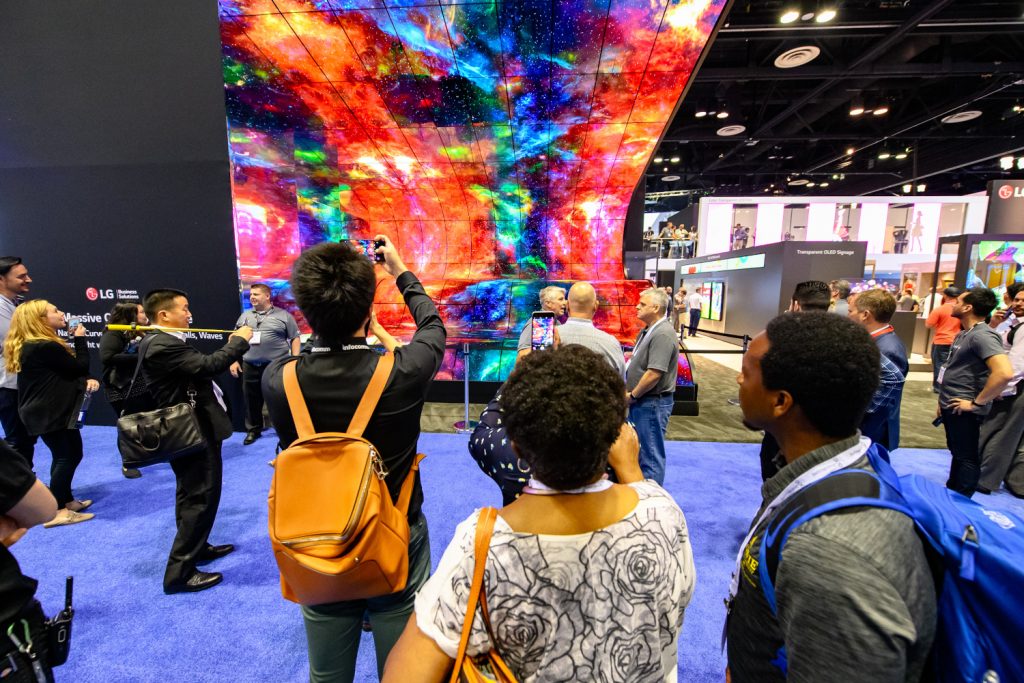My thoughts on AVIXA’s organizational restructuring and why we should be confident that things will get better.
Foreword: The commentary that follows will publish in Sound & Communications’ August edition when it launches on Monday, August 17. I share it in advance because, even though I wrote the editorial on July 28, some of the issues it brings up are even more relevant in light of the strategic realignment and organizational restructuring that AVIXA underwent last week. As is obvious, the cancellation of InfoComm 2020 was a significant blow to the organization, as well as to the commercial AV industry as a whole, and the association clearly felt that changes had to be made to ensure its ability to serve the industry and its members into the future.
As I state in the editorial below, however, we shouldn’t let the novel coronavirus (COVID-19) pandemic and its deeply negative reverberations obscure some facts about our industry, its associations and commercial AV’s continuing importance.
* Fact one: As AVIXA presciently realized a few years ago, ours is the industry of experiences. AV integrators are not just technicians, engineers and designers anymore—they are storytellers, memory-makers and smile-generators. That’s not marketing; it’s reality. Bitrates, latency and pixel pitch might make for interesting conversation topics around the water cooler, but most clients don’t care about those things except for how they shape the experiences that human beings have. AVIXA knows that, and it remains as true as ever.
* Fact two: Once the pandemic recedes, in-person trade events, conferences, panel discussions and product expositions will return, most likely in the same quantity and quality as they did prior to COVID-19. As good as Zoom, Microsoft Teams, BlueJeans, etc., are as means of connecting people from their home offices, commercial AV products and the experiences they create are best consumed in person. There’s simply no substitute for taking in the visual magnificence of a direct-view-LED display that you can see from yards away in a convention center. As a corollary, associations like AVIXA, whose event-organization and event-production skills are impeccable, remain indispensable.
Sound & Communications respects the privacy of those whose positions were eliminated, and we choose not to identify particular individuals who are no longer affiliated with the association or the percentage of people who departed from AVIXA. We also choose not to finger-point or assign blame in light of a once-in-a-century pandemic for which no industry organization could have been prepared. Instead, we look toward a brighter future when the commercial AV industry returns to a position of being able to showcase its greatest asset—the ability to make indelible memories by delivering unparalleled experiences.
Let’s face it: The novel coronavirus (COVID-19) pandemic has had dramatic effects on all aspects of our lives, both personally and professionally. When it comes to our capacity as members of the commercial AV industry, the pandemic’s particular reverberations largely depend on the role we play: integrator, consultant, distributor, technology manager, etc. For those in the industry press, like my fellow editors and me, the trade-show calendar has borne the brunt of COVID-19-related disruptions. The last exposition I physically attended was Integrated Systems Europe (ISE) in Amsterdam, the Netherlands, in early/mid-February. Since then, the pandemic erased my entire spring/summer trade-show calendar: Digital Signage Expo (delayed to November), NAB Show (made virtual) and InfoComm (made virtual). Even gatherings slated for the future—CEDIA Expo in September and NAB Show New York in October—have been preemptively virtualized.
Given COVID-19’s ravages, we expected all of that, frankly. But, as I write these words on July 28, I just learned that CES 2021, formerly scheduled for next January, has canceled its Las Vegas NV gathering; organizers are opting instead for a virtual-only experience. The very real possibility of going a full year without AV-related trade shows in the US has me thinking about industry expositions, their future and their continuing value.
I’ll be the first to say that public health and safety, rather than business-focused considerations, should guide whether and when large, many-thousand-person trade shows resume. As a husband and soon-to-be father, with twins on the way, I don’t want to potentially put my family’s or my health at risk by congregating with tens of thousands of people at a convention center before those in the scientific community deem it safe. (The same goes for being in a cramped aircraft with 200 people.) And I think our industry associations have done admirable work bringing the manifold components of an exposition—new products, education sessions, networking opportunities—to people’s home offices. (AVIXA, I would argue, did a solid job with InfoComm 2020 Connected.) But I disagree with those who think that, post-pandemic, trade shows in the AV industry won’t bounce back.
We’re in the experience business. AV integrators reading this know that, when they’re proposing, say, a large direct-view-LED videowall to a major corporate client, doing it via a Zoom call just isn’t optimal. If the client’s technology manager walks the show floor at InfoComm and sees the visual power of that large videowall, however, he or she can imagine the experience that visitors to the corporate lobby would have. The same with immersive audio…ultra-HD projection…spatial sound.
We go to trade shows for the experiences. And experience-creators like us will always value the opportunity to dive in and participate.
For more from Sound & Communications, click here.
